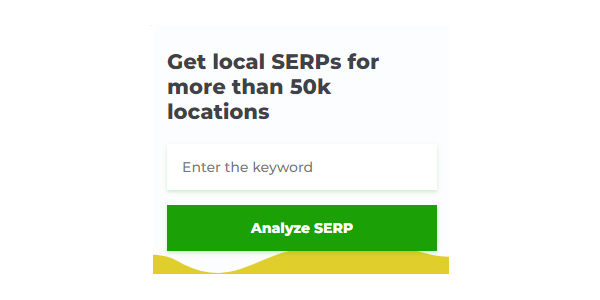What Is the Best Search Engine?
Most of us don’t put much thought into selecting a search engine. We just “Google it.” Google is the most commonly-used search engine in the United States, and there’s no doubt why. They have put a lot of money into developing a widely-used search engine that provides the most accurate results rapidly.
It is critical for your business to comprehend the methods that Google uses to accrue and disseminate material across the internet, in this digital age. Should we all be questioning if Google is the most ideal search engine, or is there another one that might be better?
In September 2018, SparkToro estimated the US search market share of the major online platforms. Below is the search engine market data they discovered.
It would be wise to keep pace with the advancements of digital media, as the field is continually evolving. Come with me as I explore the factors behind why Google is the most preferred option for web searches.
Humble Beginning: Who and When
Sergey Brin and Larry Page established Google while attending classes at Stanford University. Google was a topic of study that the two individuals pursued during their doctorate studies. The researchers’ premise was that Google (originally named Backrub) was distinct from alternative search engines due to its emphasis on interconnectivity between webpages (mainly through links). A big shift from other search engines was to emphasize links when organizing data, whereas prior systems had been arranged according to the appeared frequency of query terms in the search engine’s output. This idea fundamentally changed the way web searching operated moving forward.
When Was Google Founded?
In 1996, Google first opened its doors and, almost instantaneously, made a distinction for itself as the searching engine that bore an odd title. The company obtained its first influx of funding from investors like Jeff Bezos of Amazon and other web businesspeople. In 2004, Google officially went public.
What It Takes To Be The Best
Google is able to determine how important a website is according to the amount of pages and backlinks to the original site. Google has experienced massive success, making it the most popular search engine to use in America, processing an average of 3 billion webpages daily.
So, what about other search engines? What is the difference in search market share between them and Google? Stat Counter’s research conducted between 2015 and 2018 showed that almost 90% of all searches are done using Google properties.
Data by Stat Counter
What is the reason for Google’s popularity in terms of usage? What factors have contributed to Google becoming the preferred option of users? These are some of the explanations why we regard Google to be the primary/supreme search engine.
User-First Mentality: Get Me What I Want, Now!
It is thought that Google achieved such great success due to its willingness and ability to deliver better results for each individual. By comprehending what the user intends to search for and uncovering the most precise and appropriate websites that fit each inquiry, Google has distinguished itself from its rivals. The success of the company is heavily dependent on customers’ satisfaction with their online services.
Google provides simple, better results. If the search queries yield results that the user approves of, then they will be content. Happy users turn into repeat users. Repeat users become loyal to the platform.
Developing Strong Trust Through Better Results
Giving out improved and appropriate outcomes has allowed Google to be seen as a reliable source for locating data on the internet. Consequently, people began to abandon MSN, Yahoo, Alta Vista, and other sites for the sake of a search engine that provided quickly applicable search results.
Google’s trust has continued to increase over the years by:
- Constantly updating their search algorithms (technology and process for collecting relevant information)
- Focusing on the user, their intent, and their satisfaction
Consequently, Google has become widely known and recognizable in households across the country. A significant number of people engage in an activity where they used the internet search engine Google to look up information during a 24 hour period.
Local Search: Matching Proximity to User Search Intent
Google capitalized on the fact that small businesses are essential to the American economy. They merged the ability to search with proximity and location-based targeting to generate customized outcomes for people in the area.
The use of local search has created an even playing ground for all companies, allowing them to be identified easily using their goods or services depending on how close they are to the individual. Google gave users more accurate outcomes based on what they were searching for as well as their geographic location. Google has become the source of choice when it comes to local searches due to its tailored results.
Once this task was completed, Google went one step beyond this by combining local search results with the Google Maps platform. This enabled individuals to maneuver and discover local companies with the use of their cell phones. Google is and was able to assist users in finding their way to any desired location.
Constantly Testing and Improving: Algorithms and AI
Google is continually experimenting with its search results to adjust and modify as people’s practices modify. The exact workings of Google’s search engine system are unknown and always being updated with the help of traditional methods and artificial intelligence. The ultimate objective is to produce more accurate search results.
Many SEO professionals have attempted to manipulate the system as a way to work around Google’s algorithm and achieve a higher position in the search result listings. Although this could be effective for a short period of time, sooner or later Google will detect and sanction websites that practice shady tactics. Google is attempting to guarantee that results are fair and that customers retain their confidence in the company to give the most optimal results.
Creating the Best Video Search Engine
Google’s acquisition, YouTube, provides users with an alternative option for searching for videos. Online videos have a greater perceptual effect on viewers than television. Watching videos online gives people the opportunity to experience both audio and visual content, but, unlike TV, they are easier to access and they allow viewers to interact with the content.
Technology like WiFi, cameras, and cell phones are progressing, thus resulting in an improvement in the capacity to upload, download, and watch videos. The necessity of having a search engine capable of finding and delivering the desired output from among a huge volume of video files will rise as this pattern continues to develop. This is something that YouTube has excelled at.
5 Things Google is Doing Wrong with Local Search
1. Why do you let keywords and location information in the business title affect rankings?
Your guidelines state the following about business titles:
Make sure that your business name is reflected accurately in the offline world and that it is the same when representing your company online.
- Do not include marketing taglines in your business name.
- Do not include phone numbers or URLs in the business name field, unless they are part of your business name.
- Do not attempt to manipulate search results by adding extraneous keywords or a description of your business in the business name field.
I understand your rules and I’m in full agreement, but why do enterprises with specific words in their titles have higher approval and those without have to accept worse ratings? A business with the title “Google” instead of “Google Search Engine” chose the name, so I assume you understand.
keyword rich business names
you are opening the door to “new” companies who will spam your system while the legitimate businesses who follow your guidelines and deserve high rankings get no such bonus. I know you are working on algorithm changes to protect the innocent and penalize the naughty, but leave that to Santa in this case. Business titles should have zero effect on rankings– zero ranking fruit juice, as in none. If this were the case it would negate the spam issue entirely.
2. Why don’t you offer support?
This is the one that you have consistently gotten wrong. I get that Google is influential, but with so many available options who really worries about a handful that have been ensnared by the system. Sacrifices must be made. If you check out what is going on in localized search, you’ll see that there are an abundance of results that turn up, not just a small number of them. There are a multitude of issues that arise from trying to abide by your regulations, such as repetition of information, mismatched tags, switched reviews, missing reviews and listings, and loss of innocence, among others.
Things are even worse, seeing as you’re taking advantage of local search with Boost and Tags but you don’t give paying customers any support whatsoever. I have spoken with numerous representatives of Google Tag on the telephone, but only one of them offered assistance. He claims that he does not receive the necessary instruction or resources to be effective, so he must devote his free time researching Local Search Ranking Factors in order to have a general notion of how to assist firms with troubles. I tallied up the number of folks who were having problems in your forums earlier, and it was 31 people at around 11 o’clock this morning. If you can assist consumers in resolving their issues and, at the same time, promote the sale of tags, you could likely increase your sales by half– particularly if customers are presented with support solutions when signing up for tags.
3. Why don’t you have Multi-User Accounts yet?
Google, this one is just pure silly. You encourage businesses to obtain their listing, but seldom do enterprise proprietors understand that if they use their own accounts to claim it, they are susceptible to complications. When the company gets bigger, changes owners, or gets an SEO specialist in the area, it can be hard to let anyone else have access to the account, since there is no way to protect other people from having access to the user’s personal account details and emails. Then what? You have to take control of the account in two listings in order to figure out which account is the main one, or if there will be an identical listing and any other potential problem that typically arises when trying to transition accounts.
As a way to solve the problem, it is recommended that when claiming a listing, users should use an email for the business and not for one person, such as a shared company email address. Great idea! You should ensure that users understand that in January 2011 their data will be automatically switched if it does not match yours by sending them an email about it last week.
Provide customers with an efficient way to juggle multiple accounts and a better experience when dealing with the system and you should see an exponential rise in the amount of successfully claimed records.
4. Why do you not report Google Places Traffic information in Google Analytics?
Many enterprises do not believe that they get any visitors from Places as their Analytics show it as organic website traffic. There are still some SEOs who may believe that currently. And while Local is somewhat organic, it is lorganic.
Aren’t the recent updates from Google and the emphasis on local search supposed to make it easier to track local traffic rather than just resorting to the limited stats available in the Google Places account? If you show value, you can monetize the system. Do it for money; make it for the local area.
5. Why don’t you have a Call Tracking Option?
The quickest way to ruin your map rankings is using a call tracking number, since that is considered key information such as your name, address, and phone number in determining a spot’s prominence. However, localized searches don’t occur on the internet, so recording phone calls would place you in a place of prominence with regards to local businesses, as they are then able to survey whether the expenses associated with Tag, Boost, and Places are worthwhile. Small and medium businesses adore using Groupon because they are able to accurately measure the results of their campaigns down to the penny. Get Places that way. You could avoid making a change to your NAP by simply creating a single data field labeled “Preferred phone number to display,” enabling you to make use of a tracking phone number available through Google Voice at an additional cost. Yes, you could monetize this! I want 1%.






